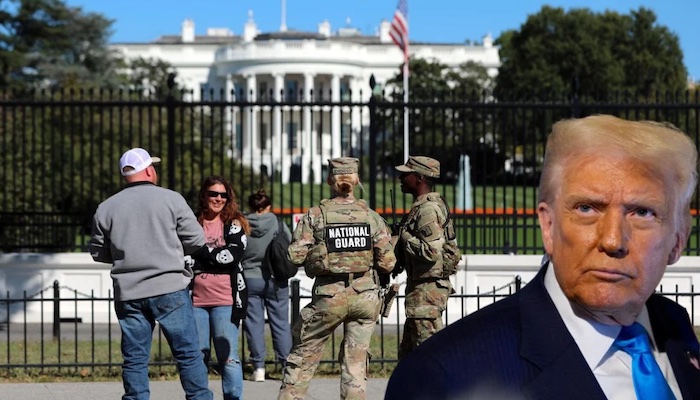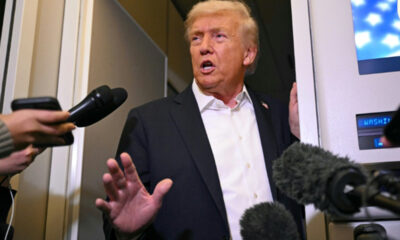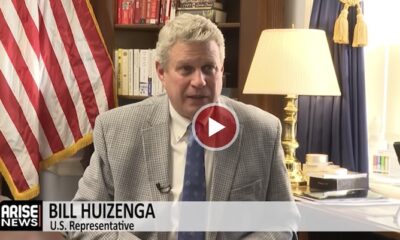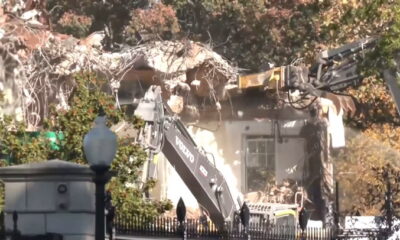World
Judge Halts Trump’s National Guard Deployment in Washington, D.C.

A federal judge has issued a temporary injunction preventing President Donald Trump from deploying National Guard troops to Washington, D.C., without the approval of the city’s mayor. This ruling represents a significant legal obstacle for the administration’s broader strategy to utilize military forces for domestic law enforcement.
U.S. District Judge Jia Cobb determined that the President does not possess the authority to bypass local governance when enforcing civilian laws in the District. The decision pauses any deployment orders until the legal questions surrounding the case are fully addressed. However, the judge has delayed the enforcement of her ruling until December 11, 2023, allowing the Trump administration the opportunity to file an appeal.
The lawsuit was initiated by the District’s Attorney-General, Brian Schwalb, on September 4, 2023. Schwalb contended that Trump unlawfully assumed control of local law enforcement, violating federal restrictions on the use of military personnel in domestic policing. In his statement, Schwalb cautioned that permitting such military deployments could set “a dangerous precedent” that threatens civilian liberties and undermines local governance.
In response to the ruling, White House spokesperson Abigail Jackson asserted that the President acted within legal boundaries, characterizing the lawsuit as an attempt to obstruct effective measures aimed at combating violent crime. The legal framework surrounding Washington, D.C. grants the President certain law enforcement powers that are not extended to state governors, which the administration argues negates the need for mayoral consent. They maintain that the presence of the National Guard has contributed to a reduction in criminal activity.
The ongoing legal dispute is part of a larger national debate regarding Trump’s controversial deployment of military personnel to various cities, including Los Angeles, Chicago, and Portland, Oregon. The President has justified these actions by citing widespread lawlessness associated with his immigration enforcement policies. Democratic leaders in those cities have voiced their opposition, accusing Trump of using militarized policing as a tool for political intimidation.
Trial courts have consistently sided with the cities in these matters, although an appellate court recently permitted troops to remain in Los Angeles while further review occurs. This legal battle underscores the tensions between federal authority and local governance, raising important questions about the appropriate use of military resources in domestic law enforcement.
As the situation develops, the outcome of the appeal could have lasting implications for the administration’s approach to law enforcement and the balance of power between federal and local authorities.
-

 World3 days ago
World3 days agoCoronation Street’s Shocking Murder Twist Reveals Family Secrets
-

 Entertainment4 months ago
Entertainment4 months agoKate Garraway Sells £2 Million Home Amid Financial Struggles
-

 Entertainment3 months ago
Entertainment3 months agoAnn Ming Reflects on ITV’s ‘I Fought the Law’ Drama
-

 Health3 months ago
Health3 months agoKatie Price Faces New Health Concerns After Cancer Symptoms Resurface
-

 Entertainment3 weeks ago
Entertainment3 weeks agoCoronation Street Fans React as Todd Faces Heartbreaking Choice
-

 World4 weeks ago
World4 weeks agoBailey Announces Heartbreaking Split from Rebecca After Reunion
-

 Entertainment6 days ago
Entertainment6 days agoTwo Stars Evicted from I’m A Celebrity Just Days Before Finale
-

 World7 days ago
World7 days agoKevin Sinfield Exceeds Fundraising Goal Ahead of Final Marathons
-

 Entertainment3 months ago
Entertainment3 months agoCoronation Street’s Carl Webster Faces Trouble with New Affairs
-

 Entertainment3 months ago
Entertainment3 months agoWhere is Tinder Swindler Simon Leviev? Latest Updates Revealed
-

 Entertainment4 months ago
Entertainment4 months agoMarkiplier Addresses AI Controversy During Livestream Response
-

 Science2 months ago
Science2 months agoBrian Cox Addresses Claims of Alien Probe in 3I/ATLAS Discovery





















